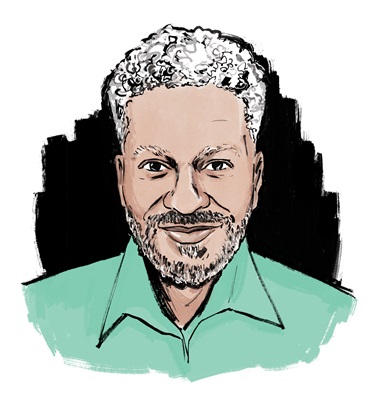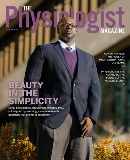Grandmothers’ Experiences Inspired My Physiology Career
By Dexter L. Lee, PhD

As we celebrate the 100 years since the discovery of insulin, I am reminded of the many scientific discoveries and advances that have occurred in the field of diabetes research. I am also reminded of my late grandmothers: Ruthie Hall and Jewel Lee.
As a teenager, I learned that both grandmothers lived with diabetes. Although I didn’t completely understand the physiological mechanisms and predispositions of diabetes as an early teen, I did know that both grandmothers took daily shots of insulin. The thought of giving myself an injection of insulin daily still is hard to comprehend and would require more courage on my behalf.
Nevertheless, they did not express fear, nor did I hear them complain about the daily injections, and they were very careful that I did not witness their daily administration of insulin. When I gained the courage to ask about the insulin shots, both would tell me, “It’s something that you become accustomed to” or “it becomes a part of your daily routine.” My frequent inquiries about the injections were quickly redirected toward topics around my well-being.
These indelible impressions of the impact of diabetes, coupled with the desire to help my dear grandmothers, ignited my interest in physiology. Although I grew up near both grandmothers, the journey on a career in physiology took me many miles from them; however, each time I would read or hear topics about insulin and/or diabetes, I would see both of their faces. I could relate to the effects of diabetes, which helped me to develop a sense of purpose and a desire to advance the field forward.
“These indelible impressions of the impact of diabetes, coupled with the desire to help my dear grandmothers, ignited my interest in physiology. ”
As a graduate student, my dissertation research centered around diabetic dyslipidemia and coronary artery disease. In fact, my first departmental seminar topic was “signaling mechanisms of insulin receptor susbstrate-1 (IRS-1).”
During my graduate training, I realized that diabetes increased the susceptibility of both grandmothers to cardiovascular diseases. My grandmother Ruthie passed away when I was 19 years old, but she never discouraged me from going many miles away to pursue my dreams. I can still hear her saying, “go as far and as high as you can.” My grandmother Jewel was placed on dialysis and lived a few more years before passing away. Although she may not have understood all of the methods, results and discussion in my dissertation, she was impressed with my research and told me she was proud of me.
As we look forward to the new frontier of insulin research, I can only imagine how my grandmothers would have preferred a nasal spray of insulin over a daily injection. Perhaps other life experiences may have inspired previous, current and future physiologists to pursue careers in diabetes research or related areas. I encourage all to find and follow a passion for their career pursuits in physiology.
Dexter L. Lee, PhD, is an associate professor of physiology at Howard University in Washington, D.C. He is also an APS Councilor.
This article was originally published in the November 2021 issue of The Physiologist Magazine.
The Physiologist Magazine
Read the Latest Issue
Don’t miss out on the latest topics in science and research.
View the Issue Archive
Catch up on all the issues of The Physiologist Magazine.
Contact Us
For questions, comments or to share your story ideas, email us or call 301.634.7314.


